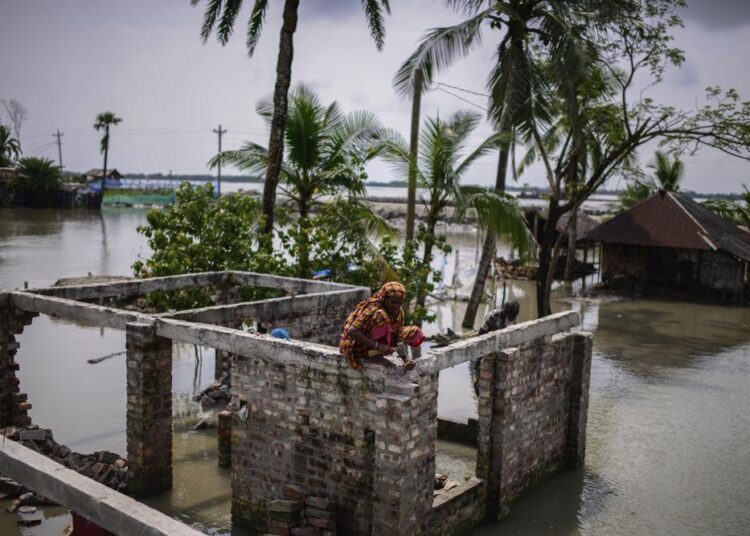SHYAMNAGAR, Bangladesh — With each tide, Abdus Satter watches the sea erode a little more of his life, according to AP.
His village of Bonnotola in southwestern Bangladesh, with its muddy roads and tin-roofed houses, was once home to over 2,000 people. Most were farmers like the 58-year-old Satter. Then the rising seas poisoned the soil with salt water. Two cyclones in the last two years destroyed the mud embankments that shielded the village from tidal waves.
Now, only 480 people remain, with the rest rendered homeless by the sea.
The effects of global warming — particularly increased cyclones, and coastal and tidal flooding that bring salt water further inland — are devastating Bangladesh and destroying the livelihoods of millions, said Mohammad Shamsuddoha, chief executive of the nonprofit Centre for Participatory Research Development.
“It’s a grave concern for a country like Bangladesh,” he said, adding that projections show some 30 million people may be displaced from the country’s coastal regions.
With world leaders gathered in Glasgow, Scotland, for a UN climate conference this week, countries like Bangladesh are pressing for more financial support to cope with global warming.
A decade-old deal for rich countries to give poor nations $100 billion each year to switch to clean energy and adapt to climate change has not been fulfilled. Even the money that is being provided — about $80 billion in 2019 — is spread too thin to make much of a difference on the ground.






Discussion about this post